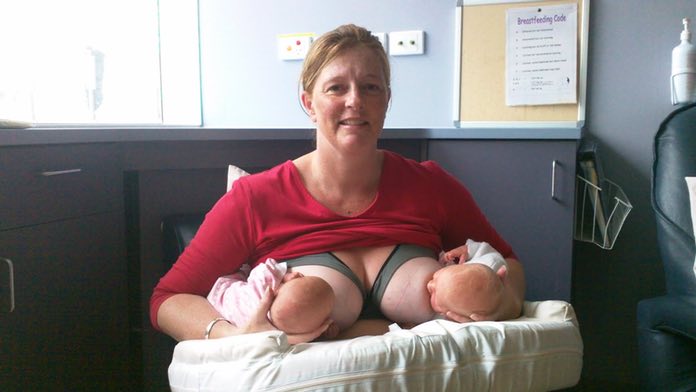Is it normal to have a stuffy nose during pregnancy
Relief for Ongoing Nasal Congestion Is Possible
If you're expecting a baby, you may be dealing with a stuffy nose that doesn’t seem to go away. This hassle is called pregnancy rhinitis. The cause of this condition isn’t really clear. However, it may be caused by hormonal changes.Having a history of allergies or asthma does not raise your risk of getting pregnancy rhinitis.
More than just a stuffy nose
Pregnancy rhinitis is an inflammation of the mucous membranes lining the nose. This causes nasal congestion. Increased blood flow to the nasal passages and enlargement of the nasal veins also play a role.
Symptoms occur during pregnancy. They can last for several weeks. On top of feeling uncomfortable, your sleep may be disrupted. This is because the congestion gets worse when you lie down. This may make you to feel more tired during the day. Long-lasting congestion also can lead to complications. These can include sinusitis and ear infections.
Be cautious when seeking treatment
Many women use non-prescription, over-the-counter (OTC) decongestant sprays to open up their nasal passages. Know that these medicines don’t work for pregnancy rhinitis. These medicines may give you temporary relief. However, they may actually make your symptoms worse and lead to a complete nasal blockage.
How can you get relief from pregnancy rhinitis? Experts say you can breathe easy with these measures:
-
Don’t use OTC nasal decongestants.
-
Drink plenty of fluids.
-
Increase the humidity levels in your home. Use a humidifier.
-
Don’t use nasal irritants, such as cigarette smoke.
-
Get moving. Regular, moderate-intensity exercise can reduce congestion. It can also help you sleep better. But first, check with your healthcare provider to see what exercises are safe for you.
-
When you go to sleep, raise the head of your bed. For instance, use an extra pillow or a wedge.
-
Ask your healthcare provider about using OTC nasal strips and saline sprays or drops.
The good news? Even if you don’t do anything, you can expect your stuffy nose to clear up soon after your baby is born. It often goes away within two weeks of childbirth.
Online Medical Reviewer: Bowers, Nancy, RN, BSN, MPH Foley, Maryann, RN, BSN
Date Last Reviewed: 4/12/2016
© 2000-2019 The StayWell Company, LLC. 800 Township Line Road, Yardley, PA 19067. All rights reserved. This information is not intended as a substitute for professional medical care. Always follow your healthcare professional's instructions.
© 2000-2019 The StayWell Company, LLC. 800 Township Line Road, Yardley, PA 19067. All rights reserved. This information is not intended as a substitute for professional medical care. Always follow your healthcare professional's instructions.
Pregnancy rhinitis: Why you might have a stuffy nose in pregnancy
- Community
- Getting Pregnant
- Pregnancy
- Baby Names
- Baby
- Toddler
- Child
- Health
- Family
- Courses
- Registry Builder
- Baby Products
Advertisement
Pregnancy rhinitis is congestion or a stuffy nose that starts during pregnancy, lasts for at least six weeks, and isn't linked to an infection or allergies. It tends to get worse later on in pregnancy, and it goes away on its own within two weeks of delivery. Pregnancy rhinitis is sometimes confused with the cold, flu, allergic rhinitis, sinusitis, or COVID-19, although these conditions usually cause other symptoms like fever or itchy eyes and nose. There are many effective treatment options, like using a humidifier and exercising regularly.
Photo credit: Thinkstock
Got an extra-stuffy nose during pregnancy that sometimes even messes with your sleep? You may be experiencing what's known as pregnancy rhinitis – or pregnancy-induced nasal congestion.
Congestion during pregnancy is a very common complaint. Fortunately, there are steps you can take to manage it. Here's why pregnancy congestion happens and how to ease stuffiness and breathe better.
What is pregnancy rhinitis?
Pregnancy rhinitis is congestion or a stuffy nose that starts during pregnancy, lasts for at least six weeks, and isn't caused by an infection or allergies. Although it may feel similar to the stuffiness you experience when you have a cold, pregnancy congestion occurs simply because you're expecting.
Is having a stuffy nose common in pregnancy?
Around 30 percent of pregnant women experience pregnancy rhinitis, making it one of the most common pregnancy symptoms. It can occur any time during pregnancy but tends to crop up between the third and seventh months, often getting worse as you near your due date.
So why is congestion linked to pregnancy? No one knows for sure, but hormonal changes during pregnancy can cause the lining of the nasal passages to swell and produce more mucus. You also have more blood circulating during pregnancy, which can make the tiny blood vessels inside your nose swell, leading to nasal congestion. Exposure to cigarette smoke and dust mites increases the risk of pregnancy rhinitis.
The good news is, nasal congestion during pregnancy doesn't affect your baby, should ease up soon after you give birth, and be gone completely within two weeks of delivery.
Is it pregnancy rhinitis or something else?
If congestion and possibly a runny nose are your only symptoms, then you probably have pregnancy rhinitis. Other symptoms may indicate another condition, such as:
- Allergic rhinitis. If allergies are the cause for your stuffy nose during pregnancy, you'll almost always also experience sneezing and/or itchiness in the eyes, nose, or throat. Keep in mind that preexisting allergies are unpredictable during pregnancy and may improve or get worse. You may also experience allergies for the first time during pregnancy.
- Cold or flu. If you have a stuffy nose as well as sneezing, coughing, a sore throat, mild aches and pains, swollen glands, muscle or body aches, or a fever, it's more likely you have a cold or the flu than pregnancy rhinitis.
- Sinusitis. Viral and bacterial infections that cause a stuffy nose can lead to sinusitis, i.e. a sinus infection. With sinusitis, you'll usually experience other symptoms beyond stuffiness including fever, headache, green or yellow mucus, facial pain or pressure (which may feel worse when you bend forward), an ache in the upper jaw, or a reduced sense of smell.
- COVID-19. Although COVID-19 can cause pregnancy congestion, you're more likely to have a fever, cough, and fatigue. That said, some research suggests that pregnant women may actually be less likely to experience COVID-19 symptoms, even though they're at greater risk of severe COVID-19 complications. Bottom line: While it's not likely that you have COVID-19 if you're just experiencing congestion, it can be hard to tell the virus apart from other conditions – so if you're concerned, get tested.
Of course, you won't always be able to tell what's causing your congestion during pregnancy, and it's possible that there's more than one cause. For example, you could have allergies and pregnancy rhinitis.
Advertisement | page continues below
Pregnancy rhinitis: Treatment options for a stuffy nose
Nasal congestion during pregnancy can lead to anxiety, trouble concentrating, and headache, all of which can make you feel miserable. Fortunately, there are many natural ways to relieve pregnancy rhinitis, including exercise and elevating your head when you sleep at night.
For most women, pregnancy congestion is just one more annoying pregnancy symptom. But sometimes, it warrants extra attention. Talk to your doctor if pregnancy rhinitis consistently disturbs your sleep, especially if you or your partner notices that you're snoring. Snoring (and sleep apnea, in particular) has been linked to pregnancy complications including high blood pressure, preeclampsia, and intrauterine growth restriction, so your doctor will work with you to come up with a treatment plan. For severe cases of congestion during pregnancy, they may recommend a short course of medication.
How can I manage pregnancy rhinitis?
To ease congestion and other symptoms of pregnancy rhinitis, try these tips:
- Pregnancy-safe exercise is one of the best ways to relieve pregnancy rhinitis. (Skip exercise outdoors on days when there's a lot of air pollution, because this may make congestion worse.
) Exercise can also help keep your pregnancy weight gain in check, which helps minimize pregnancy congestion.
- Elevate your head with extra pillows when you lie down to rest or sleep, which can help ease pregnancy rhinitis.
- Stay hydrated by drinking plenty of fluids. Just be sure to focus on water (add fruit slices for flavor), and try to minimize sugary beverages like juice and soda.
- Take a warm shower and linger in the steamy bathroom. Steam is soothing and temporarily relieves congestion.
- Soak a washcloth with hot water, hold it up to your face, and breathe.
- Try using saline nose drops or saline nasal spray three to four times a day to clear your nasal passages. They're available over the counter at drugstores, or you can make a saline solution at home using 1 cup of warm water, 1/2 teaspoon of salt, and a pinch of baking soda.
- Apply nasal strips – also available OTC at your local drugstore – to the bridge of your nose at night, which widen your nasal passages and can make it easier to breathe.
- Use a humidifier or vaporizer in your bedroom when you sleep to add moisture to the air. (Follow the cleaning instructions that come with your humidifier, because it can become a breeding ground for bacteria.)
- Avoid cigarette smoke and any other potential irritants that seem to trigger your symptoms.
Be sure to let your doctor know if you have a fever, nasal discharge that smells bad or is any color other than white or yellow, facial swelling, blurred vision, or a cough that lasts longer than 10 days or produces yellow-green or gray mucus. And never hesitate to get in touch with your practitioner if you have any other symptoms that concern you: It's always best to side with caution when you're expecting.
Can I take medication for a stuffy nose during pregnancy?
It's generally best to only take medications that are necessary, especially during your first trimester of pregnancy (since that's when your baby's organs are forming). But if pregnancy rhinitis is severe, your doctor may suggest taking a short course of a specific decongestant, particularly if you're further along in your pregnancy.
Never use OTC decongestants without getting your doctor's OK first. Some research suggests that decongestants may lead to birth defects, especially if taken for longer periods of time and in the first trimester. What's more, they can cause you to experience rapid heartbeat, anxiety, tremors, and insomnia and even make congestion worse. Your doctor will weigh the risks and benefits of decongestants and likely only recommend occasionally taking the lowest dose possible for a few days max.
Other drugs that are sometimes used to treat congestion, including corticosteroids and antihistamines, are usually only recommended to treat stuffiness linked to other causes (such as allergic rhinitis). There's little evidence on their safety or effectiveness at treating pregnancy rhinitis, so they usually aren't recommended.
Learn more:
- If you get sick during pregnancy
- Infections that can affect pregnancy
- Pregnancy medicine cabinet checklist
Was this article helpful?
Yes
No
Colleen de Bellefonds
Colleen de Bellefonds is a freelance health and lifestyle journalist. She's raising her toddler daughter and newborn son with her French husband in Paris.
My pregnancy week by week
2
weeks
pregnant
3
weeks
pregnant
4
weeks
pregnant
5
weeks
pregnant
6
weeks
pregnant
7
weeks
pregnant
8
weeks
pregnant
9
weeks
pregnant
10
weeks
pregnant
11
weeks
pregnant
12
weeks
pregnant
13
weeks
pregnant
14
weeks
pregnant
15
weeks
pregnant
16
weeks
pregnant
17
weeks
pregnant
18
weeks
pregnant
19
weeks
pregnant
20
weeks
pregnant
21
weeks
pregnant
22
weeks
pregnant
23
weeks
pregnant
24
weeks
pregnant
25
weeks
pregnant
26
weeks
pregnant
27
weeks
pregnant
28
weeks
pregnant
29
weeks
pregnant
30
weeks
pregnant
31
weeks
pregnant
32
weeks
pregnant
33
weeks
pregnant
34
weeks
pregnant
35
weeks
pregnant
36
weeks
pregnant
37
weeks
pregnant
38
weeks
pregnant
39
weeks
pregnant
40
weeks
pregnant
41
weeks
pregnant
Advertisement
Pregnancy rhinitis - why does it occur and how to treat it?
Rhinitis of pregnant women is not dangerous, but worsens the quality of life of a woman during pregnancy.Article rating
3.19 (52 votes)
Contents
- How long does pregnancy rhinitis occur and how long does it last?
- Symptoms of pregnancy rhinitis
- Causes of pregnancy rhinitis
- How to distinguish the symptoms of rhinitis during pregnancy from other pathologies?
- Treatment of rhinitis of pregnant women
- General recommendations for pregnant women who have symptoms of rhinitis
- Drugs for the treatment of rhinitis
Rhinitis of pregnancy (nasal obstruction) is a common pathology that occurs in about 30% of expectant mothers. Manifested by a typical triad of symptoms: nasal congestion, difficulty breathing, the presence of mucous secretions. By itself, it is not dangerous, but worsens the quality of life of a woman during pregnancy. The difficulty of stopping the pathology and relieving symptoms lies in the fact that during pregnancy there are restrictions on the use of a number of physiotherapeutic methods and drugs.
When does pregnancy rhinitis occur and how long does it last?
Most often, pathology occurs:
- up to and including the 20th week of pregnancy - in this case, rhinitis usually resolves on its own (after about a month or two) and does not manifest itself in the later stages;
- after the 20th week of pregnancy - this condition can continue until childbirth and after them (after 2-3 weeks).
If the symptoms last longer than two months and are not relieved by any independent action (vasoconstrictor sprays are prohibited!), then the cause may be hiding in a chronic disease.
Symptoms of pregnancy rhinitis
- Difficult nasal breathing, nasal congestion;
- Nasal discomfort, sneezing;
- Presence of clear mucous discharge;
- Feeling of constriction in the region of the nose and sinuses;
- Mild headaches.
Difficulty in nasal breathing in the mother leads to sleep disturbance and hypoxia, which is also felt by the fetus.
Causes of pregnancy rhinitis
The pathogenesis of the disease is still a controversial issue. Most doctors are inclined to believe that it is of a hormonal nature and is associated with an increased level of estrogen and acetylcholine in the blood serum (as a result), which leads to hyperemia of the nasal mucosa and swelling. The concentration of estradiol, estrone, estriol in the bloodstream of pregnant women increases, in some future mothers, for this reason, the shape of the nose may change, it may increase in size.
There is evidence that pregnant women with symptoms of vasomotor rhinitis have elevated serum placental hormone levels. Another reason that can cause long-term nasal obstruction is the tone of smooth muscle cells under the influence of the inhibitory action of the steroid hormone progesterone. It causes fluid retention in the body and has such a side effect on the nasal mucosa.
Histochemical studies have shown that nasal congestion may occur due to plethora due to hyperactivity of the parasympathetic nervous system in pregnant women.
How to distinguish the symptoms of pregnancy rhinitis from other pathologies?
Symptoms of rhinitis during pregnancy are really similar to manifestations of other diseases, for example, viral infections, sinusitis. It is difficult for a future mother to distinguish a pathology by external signs, therefore a doctor's consultation is necessary. Our clinic employs specialists with extensive experience who will quickly diagnose and prescribe treatment.
If the symptoms are accompanied by a sore throat, fever, then this indicates the presence of a bacterial and/or viral infection or other inflammatory process.
With sinusitis, mucous discharge may have a yellowish or greenish tinge. When pressing in the area of the maxillary and frontal sinuses, there are painful sensations, when the head is tilted, the pain may intensify. Also, sinusitis often causes an increase in temperature, while with nasal obstruction, such symptoms are not observed.
Sometimes rhinitis of pregnancy is confused with allergic rhinitis, which may worsen, there may be sensitization to allergens to which patients have not previously reported sensitivity.
Treatment of pregnancy rhinitis
In our clinic, a thorough diagnosis is carried out in order to exclude diseases similar to rhinitis in terms of symptoms. After the examination, individual treatment is prescribed depending on the severity, severity and indications.
Treatment is complicated by the fact that many drugs can cause contraction of the myometrium and fetal circulation or vasoconstriction with impaired placental function. Therefore, a doctor should prescribe drug therapy, you can not use drugs on your own - they can cause a violation of the development of the fetus.
General advice for pregnant women with symptoms of rhinitis
- Washing the nose with mild saline solution (2 teaspoons of sea salt per glass of water).
Salt solution improves the discharge of nasal mucus and reduces the feeling of congestion.
- Nasal douches (nose washers) are very helpful. You can use regular saline for them.
- Ventilate the room before going to bed, use humidifiers. Dry air can exacerbate unpleasant symptoms.
- Use a high pillow (or multiple pillows) to sleep with your head well above your torso.
- Walking in the fresh air before going to bed is useful.
- Do morning exercises and breathing exercises several times a day to reduce the symptoms of hypoxia.
- Do not wear perfume and stay away from smokers.
Do not use vasoconstrictor nasal drops during pregnancy as they may cause vasomotor rhinitis.
Preparations for the treatment of rhinitis
Preparations for use during pregnancy are selected with great care and individually. Pregnant women are not given oral systemic corticosteroids, although their effect on the fetus is not fully understood. In some cases, the doctor prescribes corticosteroids in the form of aerosols. Oral antihistamines are also not prescribed due to the increased risk of embryopathies. The choice of physiotherapy is also limited, because most methods negatively affect the development of the fetus.
If you suffer from rhinitis, headaches or other unpleasant symptoms, we advise you to see a doctor immediately. Timely treatment is the key to the quality of life of the mother, which is very important for bearing the fetus. And also allows you not to miss other more serious diseases that can adversely affect the health of the mother and child.
Important! Do not use drugs that were prescribed to you by a doctor before pregnancy, or drugs prescribed to someone else.
Rhinitis during pregnancy usually does not pose a threat to either the fetus or the mother, but improper treatment can lead to unpredictable consequences.
Seeing a doctor early can help keep you healthy.
Don't delay treatment, call now. We work around the clock in Moscow.
tel.: 8 (499) 501-15-53 (24 hours)
Prolonged nasal congestion (rhinitis) in pregnant women
Article rating
3.71 (Votes: 14)
Contents
- Causes of prolonged nasal congestion and rhinitis in pregnant women
- The frequency of occurrence of rhinitis of pregnant women
- What are we afraid of in pregnancy rhinitis?
- What to do if you are pregnant and you are suffering from a persistent runny nose and nasal congestion?
One of the most common distressing problems of pregnant women is rhinitis of pregnancy (swelling of the nasal mucosa, accompanied by difficulty in nasal breathing, in some cases with increased mucus production or without it).
Causes of prolonged nasal congestion and rhinitis in pregnant women
- Increased hormonal levels of progesterone, estrogen.
- Emotional stress (which is pregnancy itself)
- An increase in the volume of circulating blood, which increases the blood supply, including the lower turbinates.
- Gastroesophageal reflux - reflux of acidic contents of the stomach into the esophagus and nasopharynx due to an increase in the volume of the uterus (change in acidity causes the development of swelling of the nasal mucosa.)
The incidence of rhinitis in pregnant women more or less pronounced symptoms of prolonged (more than 6 weeks) nasal congestion, which can develop at any period of pregnancy, but most often in the II-III trimesters of pregnancy (from 12 to 38 weeks), which is understandable, based on the listed reasons for its occurrence.
A feature of rhinitis of pregnancy is that its symptoms completely disappear 2 weeks after delivery.
What are we afraid of in pregnancy rhinitis?
Despite the fact that prolonged nasal congestion and rhinitis in pregnant women accompanies a large number of women, unfortunately, if left unattended, these symptoms can lead to serious complications:
- Firstly, it is very easy to get naphthyzinum if a woman independently and uncontrollably uses vasoconstrictor drops, and this is highly undesirable during pregnancy, since the part of the drug that enters the bloodstream causes vasoconstriction and the entire vascular system and internal organs, including placental vessels, especially this it is dangerous if a pregnant woman has high blood pressure and a rapid heartbeat, these indicators may worsen while taking drops.
- Secondly: against the background of a pronounced prolonged edema and blockage of the fistulas of the paranasal sinuses, with hypothermia or contact with an infection, it is possible to develop inflammation in the sinuses: sinusitis, sinusitis, frontal sinusitis, which will entail serious treatment, antibiotic therapy and infectious intoxication of the mother and fetus.
- Thirdly: prolonged obstruction of nasal breathing naturally entails the formation of moderate hypoxia (lack of oxygen in the blood) from which both the woman herself suffers (headaches, fatigue, mood depression) and the fetus.
What to do if you are pregnant and you suffer from persistent runny nose and nasal congestion?
Be sure to contact a specialized ENT clinic or ENT office, an otorhinolaryngologist, who, first of all, will conduct a safe and permitted diagnosis during pregnancy.
For example, in the ENT clinic plus 1, you will have an endoscopy of the ENT organs, including the deep sections of the nose and nasopharynx; to exclude inflammation of the paranasal sinuses, an ultrasound of the paranasal sinuses will be done; if necessary, laboratory diagnostic methods will be carried out. All these methods are absolutely painless, do not require any preparation and have no contraindications at any stage of pregnancy.
After making a diagnosis and prescribing (if necessary) drug therapy, you will be offered methods of hardware treatment, which are also allowed at any stage of pregnancy and are highly effective in removing nasal breathing blockage: UZOL-therapy, photochromotherapy.












